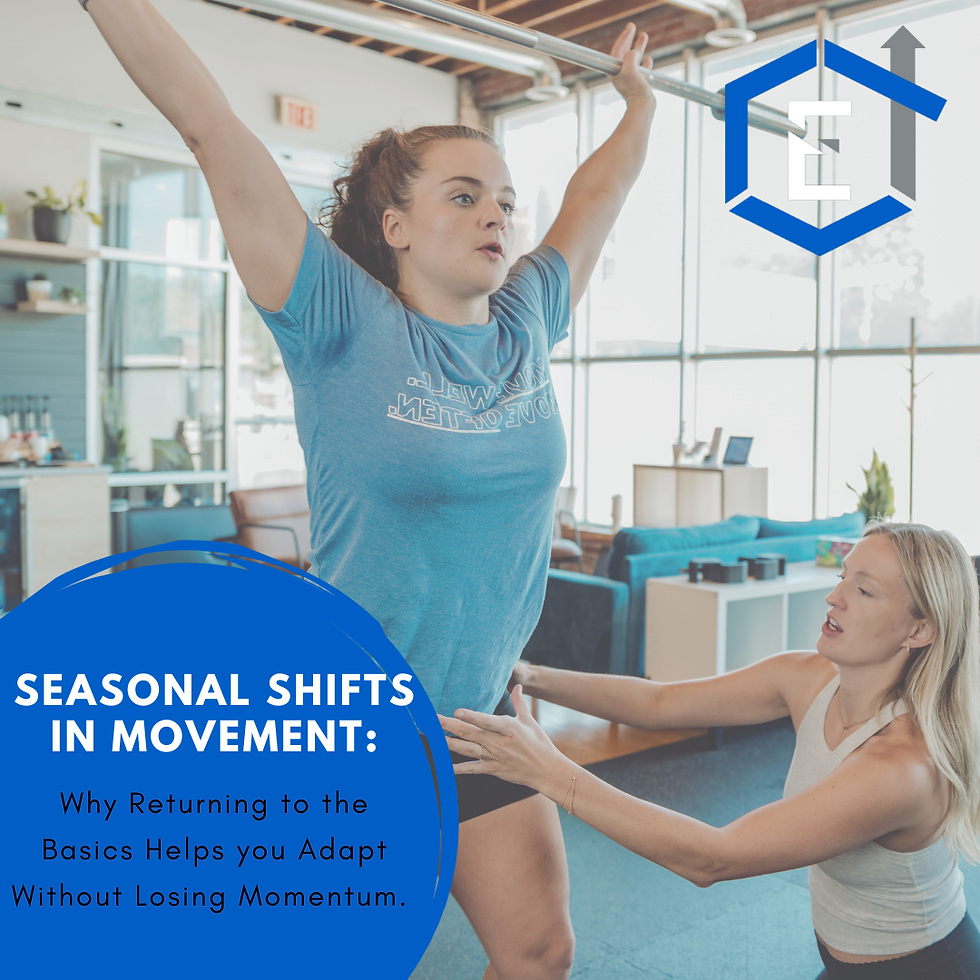Mindset Roadblock #2 | Paralysis by Analysis
- Dr. Alli Brattin-Volkens

- Aug 31, 2021
- 3 min read
Updated: Sep 21, 2021

Almost every nutrition client I see wants to know one thing: Just tell me what to eat!
And I totally get it. There’s a lot of information out there when it comes to nutrition, and it’s all super confusing, and often contradictory! Should I try Keto? Paleo? Vegan? Vegetarian?
It can be completely overwhelming and cause you to get stuck at the starting line - paralysis by analysis. In reality, a variety of diets can work for different people depending on their background and health history. However, there are certain basic principles that can work for all of us.
And yet, we often get caught up in trying to mow the lawn when the house is on fire - meaning we ignore the real issues. We look to the next new diet because we think it will somehow make "results" come faster or easier. It might initially, but it will also likely take you for a ride on the diet roller coaster that we talked about last week.
Here’s why:
We think the issue is with the knowing: I don’t know what to eat! I don’t know how much to eat, I don’t know which diet is the right diet for me! If I just knew the right “rules” I would be successful!
So because we think it’s a “knowing” problem, we keep searching, keep researching, and continue to analyze the myriad of diets out there that promise to somehow make it easier.
But the issue isn’t really about the knowing it’s about the doing. It’s about our habits, our behaviors, and most notably our paradigms of what a successful diet is supposed to look like. And every diet you’ve ever tried likely uses the same method of doing that stems from that paradigm. They give you a list of rules pertaining to the foods you can and can’t eat, the times you can and can’t eat, the amount of calories you can and can’t ingest, etc. and they expect you to implement everything all at once overnight. How is that the easiest route to success?!
It isn’t.
That’s why you keep looking for the next new diet. In our lawn/house analogy it’s like we’re looking for the best new lawnmower on the market instead of turning on the dang hose! You’re doing all this research and all this planning and getting nowhere, when really the most effective way to get started is to simply turn the knob on the spigot a little to the left. And then keep turning it a little bit more and more until you’ve unleashed a flood of success! Stop getting caught up in the wrong approach.
What you should be looking for instead is the single, most basic thing you can DO consistently, and then gradually improve upon it.
But nobody seems to want to hear that consistency with the basics is actually effective because it goes against everything we’ve been conditioned to believe as a result of the bullshit paradigm of what a successful diet is supposed to look like, a paradigm that has been constructed for us by the diet industry so that they can continue to sell us different versions of the same damn approach.
Essentially, we’ve been taught to believe that it can’t possibly be that simple. So instead, we look for a new set of complicated, arbitrary rules that fits inside our understanding of the paradigm and tells us that we must follow these rules perfectly otherwise it’s all for naught. And like we said last week, when you can’t seem to follow those rules perfectly (surprise, you're a human being!), you blame yourself and not the approach.
Yes, the basics may take more time on the front end, and they aren’t necessarily “sexy,” but if it’s lasting results that you’re after, they beat the heck out of continuously starting over. The basics will ultimately take you farther, faster than the diet roller coaster ever could. And the best way to start is with the smallest increment that you can manage consistently - because you can’t improve upon a habit you don’t have.
There are no shortcuts. But it doesn’t have to be complicated, and you don’t have to white-knuckle your way through misery. Focusing on the basics doesn’t mean bland, boring food, and it doesn’t have to mean deprivation and frustration. What it means is focusing on the things your body needs to be healthy and function at its best, like water, protein, and produce, while also allowing yourself to enjoy the foods you like best.
None of that information I just shared is earth-shattering, right? It’s not the knowing, it’s the doing. So find an approach that helps you consistently DO what you likely already know will improve your health. If necessary, find a coach or an accountability partner that can help you follow through.
Start (insanely) small. Build from there. You’ve got this. We can help.




Comments